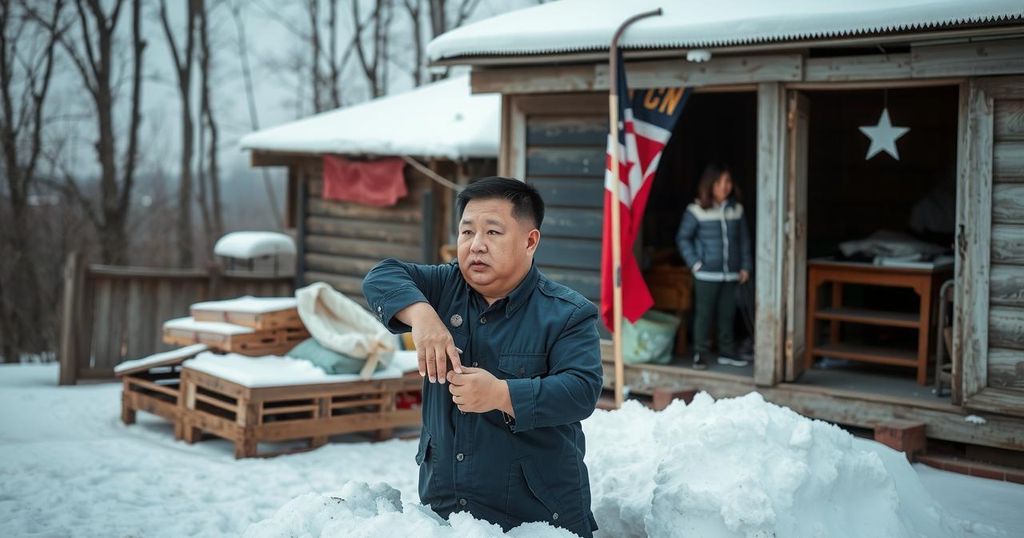World news
ASIA, BIDEN, DEFENCE, DONALD TRUMP, ENERGY INFRASTRUCTURE, EUROPE, EUROPE/ASIA, HAWK, JOHN KIRBY, KOREA, NORTH, KURSK, MILITARY, MISSILE ATTACK, NATIONAL ADVANCED SURFACE - TO - AIR MISSILE SYSTEMS, PYONGYANG, RUSSIA, SOUTH KOREA, TOM WATLING, UKRAINE, US PRESIDENTIAL RACE, WAR, ZE
Marcus Chen
0 Comments
U.S. Reports Severe North Korean Casualties in Ukraine Conflict as Aid to Kyiv Increases
U.S. officials report that North Korea is experiencing significant troop casualties in support of Russia’s war against Ukraine, as President Biden prepares to announce £1 billion in military aid to Ukraine. The situation is exacerbated by Ukraine’s struggles in the Kursk region and fears regarding the political implications of the upcoming 2025 U.S. elections.
Recent reports indicate that North Korean troops are facing severe casualties in their support of Russia during the Ukraine conflict, according to U.S. officials. White House spokesperson John Kirby stated that thousands of North Korean soldiers have been killed or injured in a single week, suggesting they are being used as expendable forces in futile assaults against Ukrainian defenses. This information corroborates prior allegations from South Korea, Ukraine, and the U.S. regarding North Korea sending significant military personnel to assist Russian efforts in the Kursk border region.
Meanwhile, the Biden administration is poised to announce a military aid package amounting to £1 billion for Ukraine, enhancing their defense capabilities amid challenging circumstances as they prepare to enter 2025. The proposed assistance will include critical munitions, such as those for advanced missile defense systems, underscoring the urgency of support for Ukraine at this juncture. Furthermore, with rising concerns regarding the implications of potential U.S. presidential policies in 2025, the future of Ukraine’s defense remains uncertain, particularly with the anticipated re-election of Donald Trump, who has criticized ongoing support for Kyiv.
Amid these developments, Ukrainian forces face significant challenges in retaining control of the strategic Kursk region, marking a crucial battlefront. Commanders have reported heavy casualties and diminished morale, as communication issues and logistical difficulties hinder their operational effectiveness. Reports of Russian reinforcements and North Korean troop involvement have intensified combat in the area, contributing to a precarious situation for Ukrainian armed forces. The ongoing geopolitical negotiations and military strategies are pivotal as Ukraine navigates this critical phase of the conflict, seeking to maintain autonomy and safeguard territorial integrity.
The ongoing conflict between Ukraine and Russia has been exacerbated by North Korea’s involvement, which has led to significant casualties among North Korean troops. This situation has drawn attention to the extent of foreign military support in the war and the consequential strategies implemented by the involved nations. The United States continues to bolster Ukraine’s defenses through substantial military aid, reflecting the strategic importance of the region and the implications of global political shifts. As the 2025 elections approach, the dynamics of foreign policy towards Ukraine could shift dramatically, especially with potential changes in U.S. leadership that may influence military support and diplomatic negotiations with Russia. The outcome of these elections will likely play a critical role in shaping Ukraine’s future and its ongoing conflict with Russian forces.
The reported mass casualties of North Korean troops serving alongside Russian forces highlight the dire circumstances faced on the battlefield, compounding pressures on Ukraine’s military response. As the Biden administration prepares to announce significant military support, the situation in the region remains fraught with uncertainty, particularly with implications surrounding the upcoming U.S. elections. Such developments will be decisive in determining the next phases of military engagement and geopolitical negotiations in Eastern Europe.
Original Source: www.independent.co.uk




Post Comment